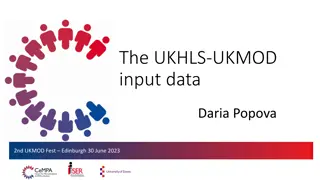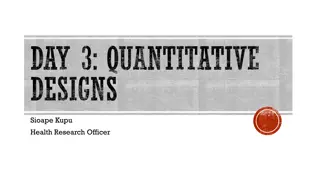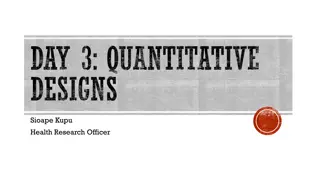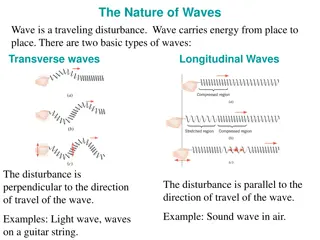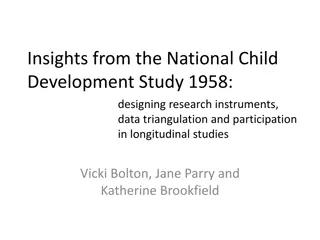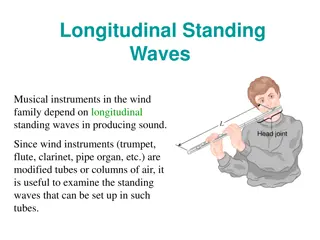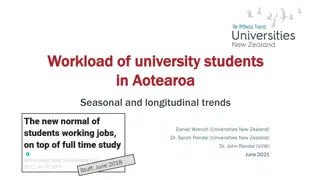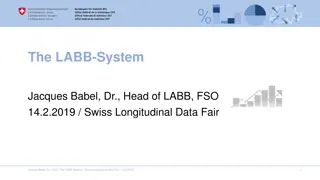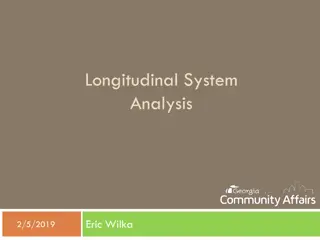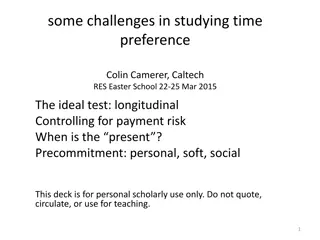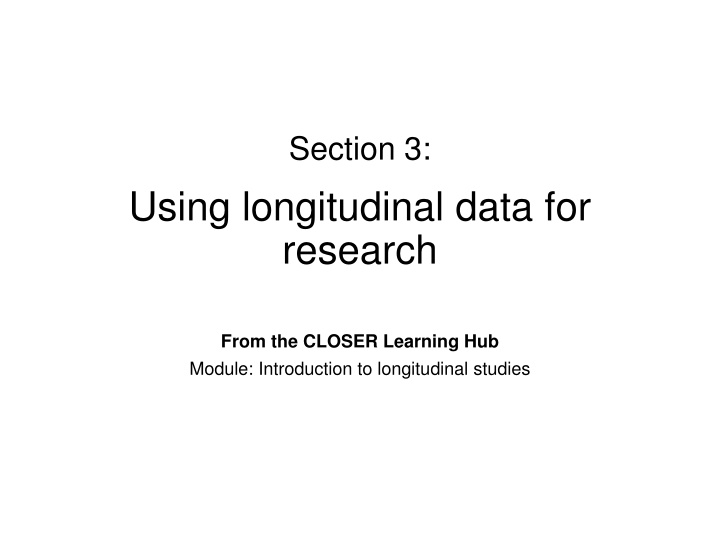
Exploring the Power of Longitudinal Data in Research
Unlock the potential of longitudinal studies to understand life transitions, behavior changes, and social dynamics. Discover how different disciplines leverage longitudinal data and explore its strengths and weaknesses for in-depth analysis. Dive into the world of longitudinal research and its applications in various fields.
Download Presentation

Please find below an Image/Link to download the presentation.
The content on the website is provided AS IS for your information and personal use only. It may not be sold, licensed, or shared on other websites without obtaining consent from the author. If you encounter any issues during the download, it is possible that the publisher has removed the file from their server.
You are allowed to download the files provided on this website for personal or commercial use, subject to the condition that they are used lawfully. All files are the property of their respective owners.
The content on the website is provided AS IS for your information and personal use only. It may not be sold, licensed, or shared on other websites without obtaining consent from the author.
E N D
Presentation Transcript
Section 3: Using longitudinal data for research From the CLOSER Learning Hub Module: Introduction to longitudinal studies
What longitudinal studies show us how key life transitions change the course of a person s life how behaviour changes as people get older how early life influences later life how health, wealth, family, parenting, education, employment and social attitudes are linked how these aspects of life vary for different people
Social science uses of longitudinal data Economics: What is the effect of education and training on earnings in later life? Geography: How well do immigrants entering the UK assimilate into local labour markets? Political Sciences: What is the impact of cognitive ability and personality on voter turnout? Sociology: What is the relationship between a child s family background, and how well they do at school?
Biomedical science uses of longitudinal data Genetics: What is the relationship between a particular genetic variant, smoking behaviour and the risk of a person developing lung cancer? Health: How does the consumption of specific foods and drinks relate to excess weight gain among children? Psychology: How much does bullying increase the risk of depression and self-harm in adolescence?
Strengths of longitudinal data Detail over the life course Establishing the order in which events occur Reducing recall bias
Strengths of longitudinal data Exploring patterns of change and the dynamics of individual behaviour Assessing the time-related characteristics of particular events or circumstances Providing insights into causal processes Distinguishing between age and cohort effects
Weaknesses of longitudinal data Attrition Conditioning Limits of representivity Complexity Timeliness Cost

